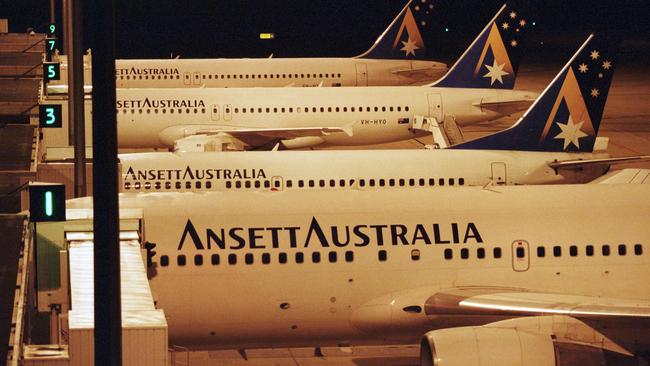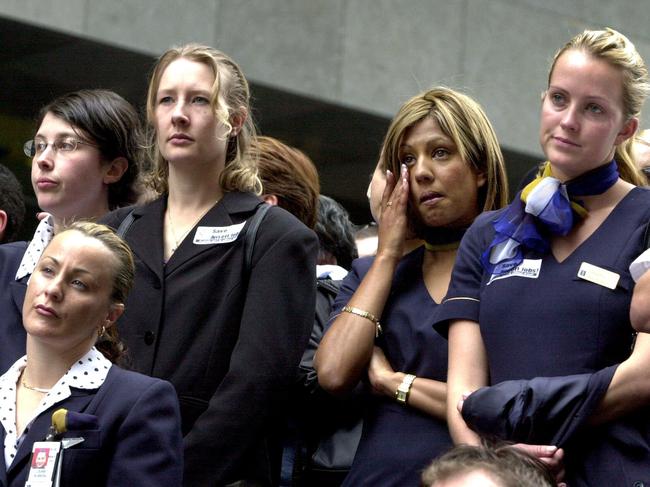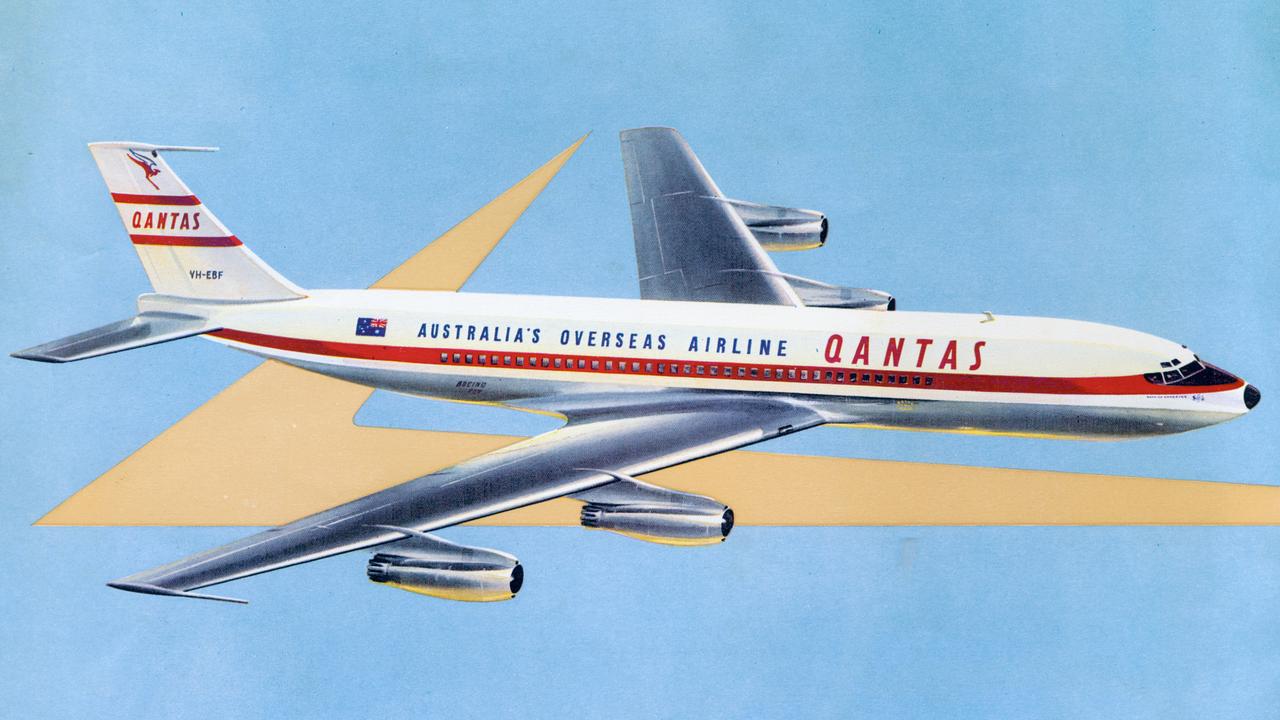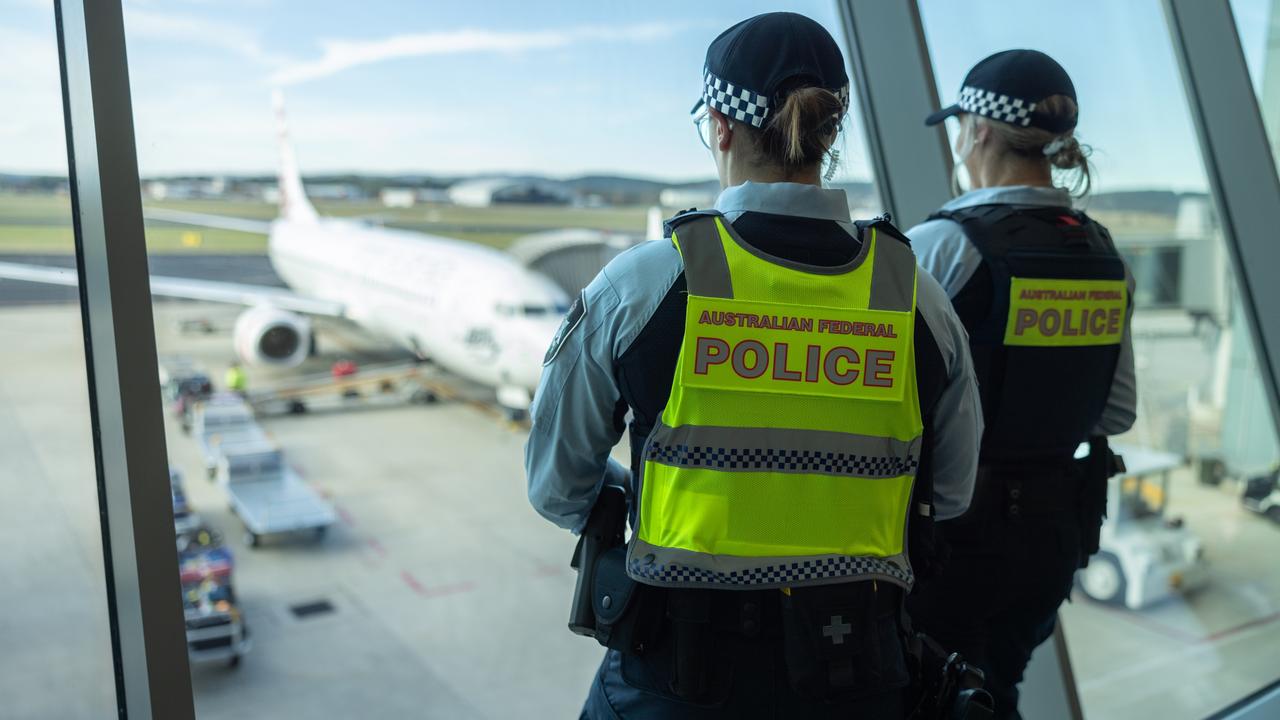Chaos in wake of Ansett collapse
The Howard government refused to meet a long list of demands from two of Australia’s richest men derailing the sale of Ansett.

Cabinet papers from 2001 have shed light on the dramatic Ansett collapse and subsequent failure of the airline’s sale to two of Australia’s richest men.
After 65 years of operation, Ansett was placed into administration by owner Air New Zealand on September 12, 2001, and grounded two days later, stranding hundreds of passengers and isolating many communities.
A cabinet meeting on September 14 noted the “extent of Air New Zealand’s obligations was uncertain” but the government would pursue “all available avenues to ensure Air New Zealand meets its obligations to the Ansett Group and … employees”.
A $10 ticket levy would be imposed on airline passengers to help fund “the special employees’ entitlements scheme for Ansett Group employees”.
What would prove to be a difficult relationship with administrators Mark Korda and Mark Mentha began poorly when they excluded government officials from a meeting with the board of Air New Zealand. Cabinet also took a dim view of the administrators’ request for the government to make a gift of $195m for employees’ entitlements.
The condition was also part of an offer to buy Ansett, made by Tesna Holdings led by Solomon Lew and Lindsay Fox.
Under their proposal, Ansett would continue to operate with 4000 of its 15,500 employees, flying major domestic trunk routes.

The businessmen sought a $150m payment to Tesna in return for air travel tickets, and a $150m loan or loan guarantee to support fleet replacement and working capital facilities. They also wanted relief from withholding tax on aircraft lease payments worth $85m in the first five years, support for speedy procurement of an Air Operators’ Certificate (AOC), support for allocation of international capacity previously held by Ansett and changes to the Trade Practices Act.
Cabinet agreed there should be “no support that would skew the market in favour of one airline”. “With respect to the Tesna bid, the cabinet noted the commonwealth had been able to agree to a number of regulatory measures which did not entail financial assistance … ” the papers said. “(Cabinet) agreed that it would not be appropriate to accede to Tesna’s request for changes to the Trade Practices Act … and further agreed in view of the emerging developments in the aviation market the government should not take measures that would distort that market.”
Just over two months later, in February 2002, Tesna pulled out of the deal at the 11th hour, citing “a lack of support from the Australian government”. Ansett flew its final service on March 4, 2002.




To join the conversation, please log in. Don't have an account? Register
Join the conversation, you are commenting as Logout